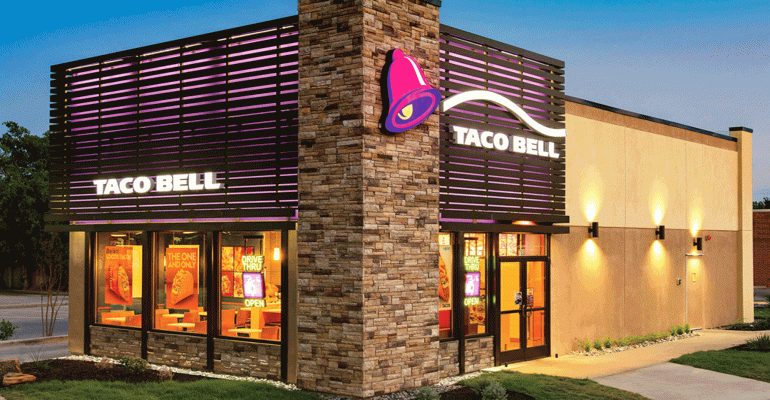 This post is part of the On the Margin blog.
This post is part of the On the Margin blog.
Dave Olson thinks a lot of the Taco Bell system.
“I love the brand,” he said in an interview. “Taco Bell is a great brand. It’s on top of its game, from a food innovation standpoint, to its programming, to the way it’s handling social media. It’s had an incredible run.”
And yet, Olson said this after selling all 57 of his Taco Bell locations to Pacific Bells, a Taco Bell operator based in Vancouver, Wash.
For him, the decision was a matter of timing. Prices for Taco Bell locations are ridiculously high — no system fetches prices quite as high as the fast food Mexican chain. Olson, meanwhile, is 60, so he’s nearing retirement.
And the regulatory environment is getting too challenging, particularly in California, where Olson operated his locations.
“It takes the fun away from it,” Olson said. “Now you’re just waiting for them to pass more laws or put more laws on the books.”
Olson’s decision to sell is indicative of the decisions many operators of legacy brands are making around the country.
The industry is quietly going through a massive overhaul of the people responsible for running restaurants in chains like Taco Bell, The Wendy’s Co., Burger King, McDonald’s Corp. and many others.
Older, legacy franchisees are selling to larger or newer operators or both, as operating restaurants grows more difficult, brands drive changes and people simply age and opt to slow down.
Many of these legacy brands grew in the 1970s and 1980s, attracting operators who grew along with them. But these operators are near retirement age, and so they’re opting to sell.
In recent years, the restaurant business has grown more complex. It costs more to operate a restaurant than it once did. Just as operators emerged from years of higher commodity costs, labor costs are now increasing.
Minimum wages are rising in many areas, driving up costs, and in some places franchisees like Olson are growing weary of the regulatory environment.
In some instances, franchisees feel unable or unwilling to spend the money on remodels or other improvements that many brands are demanding in a competitive environment — most major franchise systems are currently demanding remodels.
At McDonald’s Corp., some franchisees are opting to leave the system amid the chain’s requirements that they invest in things like kiosks and new espresso machines, as well as changing performance requirements.
“As you put together a performance expectation along with an investment expectation, we are seeing some owner-operators decide now is a good time to exit the system,” Chris Kempczinski, president of McDonald’s USA, said on that company’s earnings call last month.
As complex as the business is, however, there are plenty of buyers eager to snap up these restaurants. That includes larger franchisees eager to grow larger, often fueled by private equity firms that have found a desirable investment target in the cash flow from franchise operations.
“We see a fair amount of people kicking the tires on franchisee opportunities in the restaurant space,” said Chris Sciortino, managing director with Robert W Baird & Co.
And lenders are willing to loan money to these buyers are attractive rates, which is enabling them to bid up the price on some of these acquisitions.
As such, prices for franchisees in many brands — notably Taco Bell, but also Wendy’s and others — remain historically high. And so operators like Dave Olson who are nearing retirement and are growing frustrated by the business find the market too attractive not to get out.
All of it is contributing to an environment in which the franchisee base is changing rapidly and growing larger. And private equity investors keep putting money into the businesses.
Some franchisors are aggressively dealing with these changeovers by working to direct stores into the hands of certain franchisees. In many cases the franchisors are tying the deals to remodel or development requirements.
“We have a long-tenured franchise system,” Wendy’s CEO Todd Penegor said on the company’s third-quarter earnings call this week. His company is buying many of these franchisees out and reselling those to its preferred operators, which it calls “Buy & Flip.” The company expects to do about 500 to 550 of these this year.
Ultimately, this is part of a natural evolution of a franchise system. But the trend is fueling considerable change at many of these chains, even if most people can’t see it.
Jonathan Maze, Nation’s Restaurant News senior financial editor, does not directly own stock or interest in a restaurant company.
Contact Jonathan Maze at [email protected]
Follow him on Twitter: @jonathanmaze

